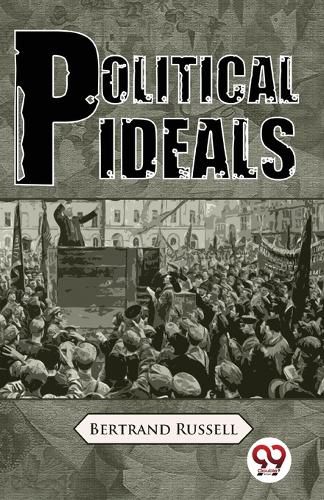Readings Newsletter
Become a Readings Member to make your shopping experience even easier.
Sign in or sign up for free!
You’re not far away from qualifying for FREE standard shipping within Australia
You’ve qualified for FREE standard shipping within Australia
The cart is loading…






This title is printed to order. This book may have been self-published. If so, we cannot guarantee the quality of the content. In the main most books will have gone through the editing process however some may not. We therefore suggest that you be aware of this before ordering this book. If in doubt check either the author or publisher’s details as we are unable to accept any returns unless they are faulty. Please contact us if you have any questions.
British philosopher, logician, and political activist Bertrand Russell had a broad spectrum of political views. His dedication to human liberty, social fairness, and international collaboration influenced his worldview. Russell upheld the importance of one's own independence, free expression, and individual liberty. He believed that liberalism was the philosophy of politics that best promoted individual liberty. Russell was a socialist who saw wealth redistribution and economic equality as necessary. He believed that socialism will help to create a society that is more fair and equitable. Russell thought that nationalism and war were evil forces that needed to be defeated. He pushed for the establishment of a global government that would endeavor to stop conflicts and promote intergovernmental harmony. Russell was a staunch pacifist who thought that no circumstance ever called for going to war. He considered the use of force to be a failure of diplomacy and thought that international conflicts might be settled amicably. Russell felt that every person has intrinsic value and dignity. He believed that humanism may help people thrive and be happy. Russell's political beliefs were primarily motivated by the desire to build a fairer, peaceful, and equitable society that upholds individual freedom, fosters economic equality, and values international cooperation.
$9.00 standard shipping within Australia
FREE standard shipping within Australia for orders over $100.00
Express & International shipping calculated at checkout
This title is printed to order. This book may have been self-published. If so, we cannot guarantee the quality of the content. In the main most books will have gone through the editing process however some may not. We therefore suggest that you be aware of this before ordering this book. If in doubt check either the author or publisher’s details as we are unable to accept any returns unless they are faulty. Please contact us if you have any questions.
British philosopher, logician, and political activist Bertrand Russell had a broad spectrum of political views. His dedication to human liberty, social fairness, and international collaboration influenced his worldview. Russell upheld the importance of one's own independence, free expression, and individual liberty. He believed that liberalism was the philosophy of politics that best promoted individual liberty. Russell was a socialist who saw wealth redistribution and economic equality as necessary. He believed that socialism will help to create a society that is more fair and equitable. Russell thought that nationalism and war were evil forces that needed to be defeated. He pushed for the establishment of a global government that would endeavor to stop conflicts and promote intergovernmental harmony. Russell was a staunch pacifist who thought that no circumstance ever called for going to war. He considered the use of force to be a failure of diplomacy and thought that international conflicts might be settled amicably. Russell felt that every person has intrinsic value and dignity. He believed that humanism may help people thrive and be happy. Russell's political beliefs were primarily motivated by the desire to build a fairer, peaceful, and equitable society that upholds individual freedom, fosters economic equality, and values international cooperation.